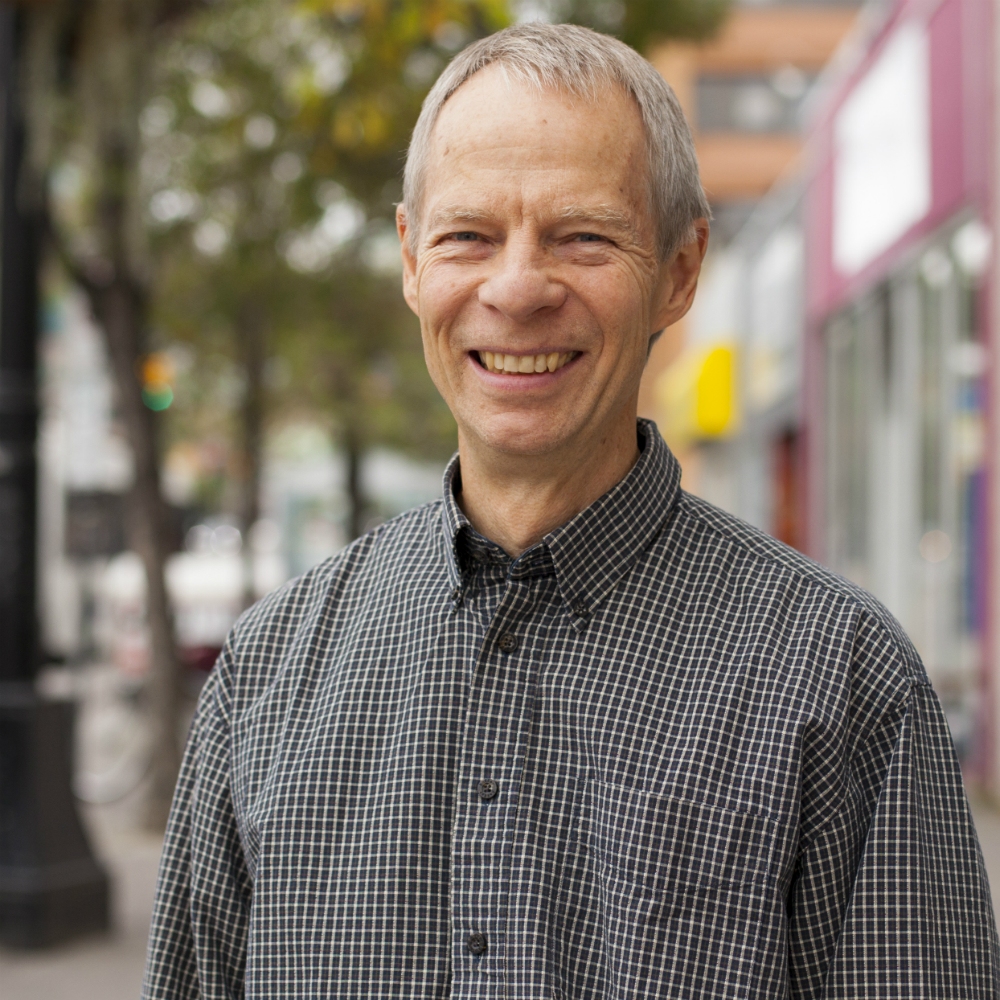News and Releases

Faculty Profiles
Faculty: In Their Own Words - Dr. John Derksen
Monday, January 6, 2020 @ 11:48 AM | Faculty Profiles

Dr. John Derksen, Associate Professor of Conflict Resolution Studies, has taught at MSC since 2000.
What do you love about your work here?
I love the students, I love the classroom. We build relationships as we go and by the end of the semester it often feels like we're friends. And I love the place where we are. There's this big inner city that's a place of poverty and wealth and business and politics and 10,000 students at the University of Winnipeg, and we are there right in the middle of it. It's where the church and the world meet, and I think it's a great place to be.
What are you teaching right now that you're most excited about?
In the course Conflict, Faith, and Community, a lot of students will say at the end of the semester, "I came in with this perspective on life, and I've really opened up." Because our classes are diverse. There's Muslims and Christians, Jews, Hindus, Buddhists, Atheists, Agnostics, and Indigenous traditions and they share with each other. The students often say, "The world just got bigger and I see things in a different way." That feels really good.
What are you researching and writing?
For the last nine years I've been working on writing a book about the history of peacemaking worldwide, beginning from 3000 B.C. till today. So the scope is huge. But when I started teaching History of Peace and Nonviolence about 15 years ago, there was no textbook. I had to cobble materials together until finally in 2009 a book came out. But the students couldn't understand it! And as I read it, I thought, I think I can write better than this. Conflict resolution and peacebuilding are growing fields and those students need a book. After all these years, I'm not tired of it, I'm still motivated and excited about it.
Where or how do students give you hope?
The MSC student council just organized an event called Common Unity, where seven inspiring speakers came and talked to us. There was a young man, with prison experience himself, who is changing Canadian laws to be more supportive of those released from prison. There was also a 17-year-old climate change activist who was invited to speak to the Supreme Court of Canada. There's some hope here, these young people have a vision and are doing things that I can't do anymore and are moving the world in a certain direction. I've had two thousand students over the years and some of them are bound to turn out to be great leaders and that gives me hope.
What are you reading for enjoyment?
I really like history, so I even read history for enjoyment, but it ties into my research. I also read politics, like in The Economist magazine. I enjoy reading that because I grew up overseas in Congo, so I've always been interested in international things. I enjoy reading magazines that give pictures of what's happening in other countries.
Do you have any interesting projects underway in the broader community or church?
My main project is to be a good grandpa to my seven grandchildren. Otherwise, 13 years ago my wife Nel and I went to Congo to monitor the first free election there in 45 years. We met an orphanage director who invited Nel to stay at the orphanage while I taught a course. Since then, we have been involved in supplying water tanks, digging a well, and sending funds for food and school fees. Back then the kids were small but now nine of them are in university and we're raising funds for tuition fees. It's a commitment that is very meaningful for us.
What saying or motto inspires you?
Gandhi had a saying, "Be truthful, be gentle, be fearless." I like that.
KEYWORDS: faculty in their own words, faculty, John Derksen, Menno Simons College, Conflict Resolution Studies

 Print This Article
Print This Article